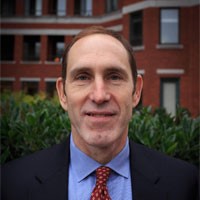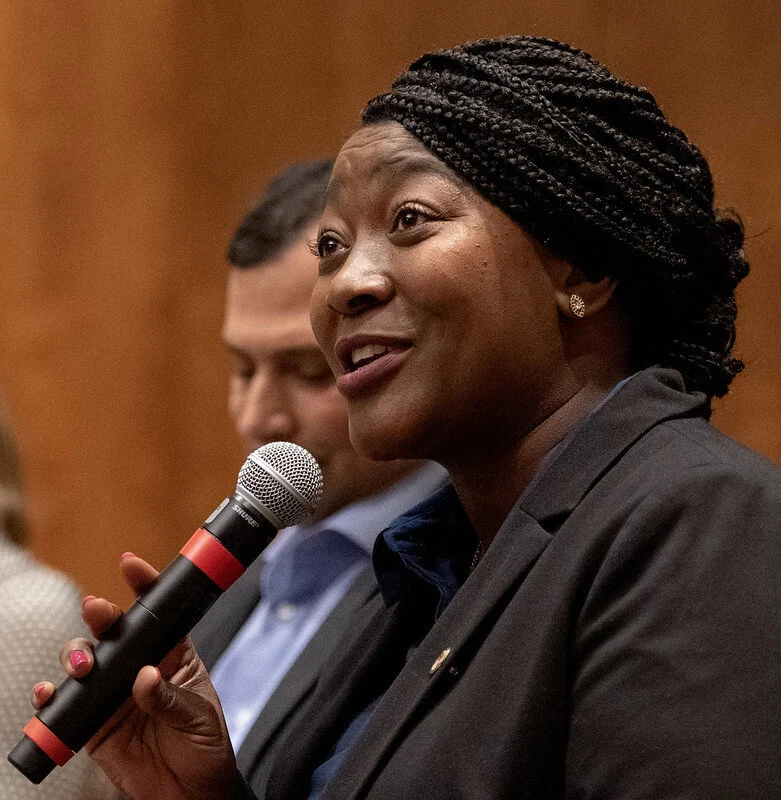The Community Foundation administers the Fund for Children, Youth, and Families, a five-year initiative, to invest in effective organizations working to make the community more vibrant, healthy, and stable. The 2021 cycle includes nearly $4.8 million in multiyear grants to 50 nonprofits offering housing services, permanency support, academic support, and early career development programs.
826DC to help students improve writing skill development and increase fluency with writing based on the National Writing Project standards.
Adoptions Together to provide training for families interested in fostering and to place foster children in permanent homes.
The Arc of Prince George’s County to support participants of the Ready@21 Program, which helps young adults through career coaching and resume development to increase job readiness, improve college awareness, and develop self-advocacy skills.
Aspire! Afterschool Learning to improve reading instructional level by one grade or more for students in its afterschool care program.
The Barker Adoption Foundation to provide older foster child adoption training and facilitate the placement of older foster children and/or sibling groups.
Bread for the City to support advocacy efforts for families at risk of housing displacement and to provide direct services to families through the Food Program, Clothing Program, Medical Clinic, Social Services Program, and Legal Clinic.
Bright Beginnings to support early childhood development for children ages 0-5.
Carpenter's Shelter to help families who enter shelter to gain stability and transition to permanent housing and sustain independent living.
CASA for Children of DC to provide advocacy support for reunification, adoption, or guardianship for foster youth and workforce development activities for older foster youth.
Center for Adoption Support and Education (C.A.S.E.) to provide trainings and support for pre-adoption and post-adoption guardians.
Central American Resource Center to provide financial training and planning to support stable housing for Latino immigrants.
Children's Law Center to provide legal representation for child welfare cases to ensure children are growing up in permanent, stable families.
Community Crisis Services, Inc. to assist households experiencing homelessness and/or domestic violence to access safe, permanent housing.
Community Family Life Services to provide intensive financial coaching, financial case management, and wrap around supports for women seeking housing stability.
Cornerstones, Inc. to provide rental assistance services for at-risk tenants.
Court Appointed Special Advocate (CASA)/ Prince George's County, Inc. Support the Job Readiness and Transitioning Youth program, which ensures that at youth participants who emancipate will do so with stable housing
Voices for Children Montgomery to provide placement in safe homes for clients at case closure.
DC SAFE to help clients move to safe transitional or permanent housing after their stay in SAFE Space.
DC Volunteer Lawyers Project to offer advocacy and referrals, including enforcing victim rights in housing, employment, and public benefits, as well as provide legal assistance and advocacy with victim legal rights.
DC127 to help teen parents who are aging out of foster care be prepared for a life of independence with stable housing, jobs, and increased access to supportive services.
District Alliance for Safe Housing to help families transition from emergency shelter to more permanent housing with increased economic and housing stability.
District Of Columbia Grassroots Empowerment to help secure long-term housing for residents displaced and impacted by public housing redevelopment.
Doorways for Women and Families to provide re-housing supportive services to help participants achieve stability and transition to permanent housing.
The Dwelling Place, Inc. to help program residents remain stably housed and maintain compliance with program requirements through case management, increasing financial stability, and home visits.
Family & Youth Initiative to assist participant teens in foster care with finding an adoptive family and provide continuing support to participant youth who age out of foster care.
Fihankra Akoma Ntoaso to provide afterschool and summer programs for children in the child welfare system to allow them to develop positive relationships with adults and peers.
Crittenton Services of Greater Washington to increase school attendance, academic engagement, and grade point average for Goal Setting Girls participants.
Foster and Adoptive Parent Advocacy Center (FAPAC) to provide training, peer support, financial stability, and individual advocacy to foster families in DC.
Homeless Children's Playtime Project to provide ongoing play programs and supportive services for homeless children in DC.
Hope And A Home, Inc. to help resident families increase financial stability and make progress towards transitioning into and/or maintain permanent, stable housing.
Horizons Greater Washington to provide literacy and math academic enrichment support for students.
Housing Up to provide employment support, rental assistance, and financial support services for affordable rental housing buildings.
Interfaith Works Inc. to help families experiencing homelessness achieve stability and transition to permanent housing with the assistance of case management and supportive services.
Martha’s Table to support academic enrichment for the six developmental domains — early literacy, early math, language, cognition, physical development, and socioemotional development.
Mary's Center for Maternal and Child Care, Inc. to support the Home Visiting Program, which encourages early childhood development through reading, storytelling, and singing with young children daily.
Montgomery County Coalition for the Homeless, Inc. to help residents maintain on time rent payments and permanent, stable housing.
My Sister's Place to help residents increase income, provide case management, and transition to transitional or permanent housing.
National Housing Trust Enterprise to help NHT households participate in financial programs and maintain stable housing.
Neighborhood Legal Services Program to host “Know Your Rights” presentations and represent clients in cases involving housing discrimination, illegal eviction, rent increases, housing conditions, voucher termination, and loss of subsidies.
Neighbors Consejo to assist low-income families in transitioning from shelter to rental housing, while helping them improve their personal and financial stability.
Northern Virginia Family Service to provide foster care pre-service training and Resource Parent certification.
One Common Unity to improve course grades, increase class attendance, and reduce punitive disciplinary actions for students in the Fly by Light program.
One World Education to increase research and writing skills as well as social and emotional learning for students.
The Platform of Hope to provide housing, education, employment, family stability, finances, and health support services for low-income families at risk for homelessness.
Prince George's Child Resource Center, Inc. to improve language and cognitive abilities through participation in child development and parent/child learning activities.
Reading Partners to help students meet or exceed their primary, individualized end-of-year literacy growth goal.
Right Beginnings Inc. to provide career development, mentoring, and career counseling to homeless women seeking to increase financial stability to find housing.
Rising for Justice to provide tenant rights educational trainings and legal services for tenants in need of improved housing conditions or facing eviction.
Sasha Bruce Youthwork to help at-risk youth achieve safe and stable living environments.
Stepping Stones Shelter to help resident families increase their income during stay and move on to stable housing utilizing a subsidy program.





























